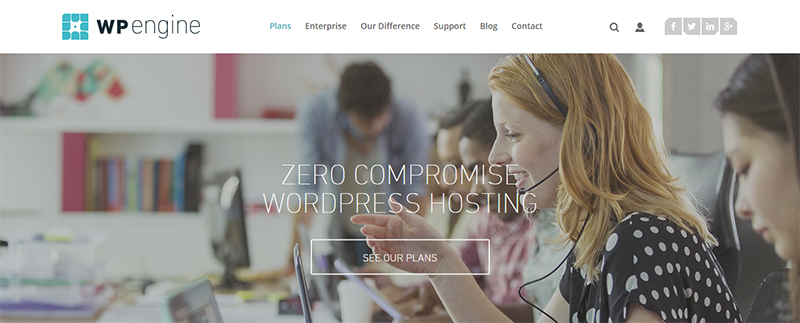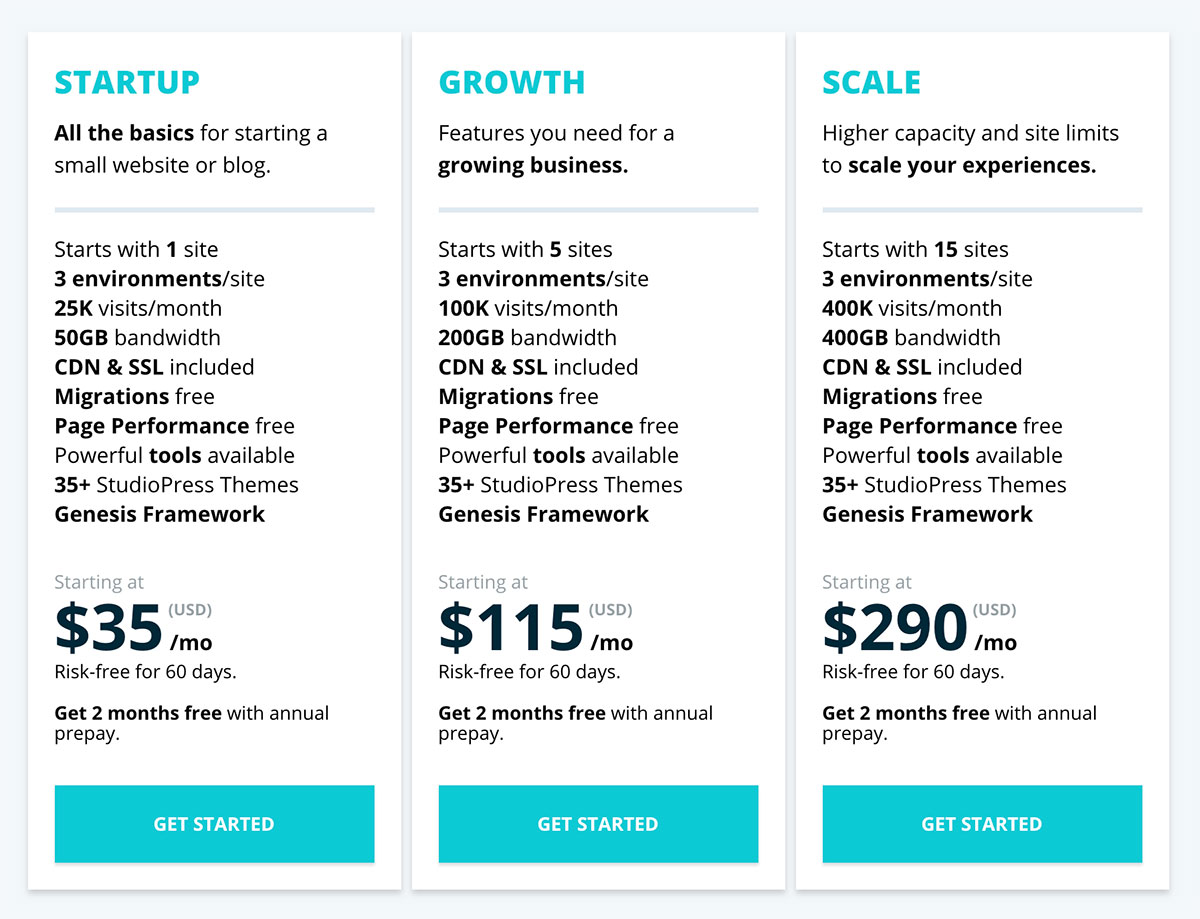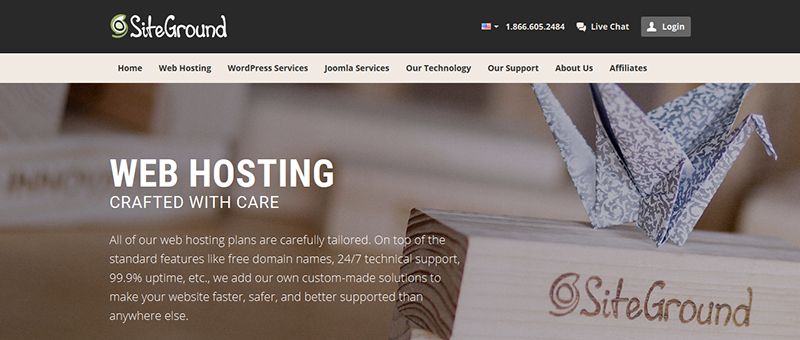
You have numerous options if you are looking for a web host for your new WordPress site. There are hundreds, if not thousands of great providers of web hosting services. This post is aimed at anyone creating a new WordPress site or those who’ve created a new WordPress site and aren’t satisfied with their web host.
With so many options, the question becomes, “how do you pick the one that’s best for you and your website?”.
Many parameters play a role, in the suitability of a web hosting service.
In case, you were wondering we use Kinsta. Our plans currently set us back $1,800 a month, depending on data transferred.
With web hosting, one size certainly does not fit all. The ideal web host for Colorlib is probably not the best for you. If you’re starting a website under a new domain name, you’ll find the costs expensive and the hardware unnecessarily powerful.
Every scenario is different, a few pointers to help you find the right host. First, we need to address your requirements.
What Does Your Website Need?
A few questions that arose,
- What is your current website traffic? How much do you expect it to grow in the next few months?
- How scalable a web hosting provider do you want? This would depend on your answer to the previous question.
- Do you require your hosting service to be developer-friendly?
- How much support do you need?
- What is your allocated budget for your hosting solution?
These should be foremost among the questions you must answer before identifying the right hosting solution for your WordPress site.
What Features To Look Out For In Your Web Host?
1. Speed & Performance
Good hardware is essential to ensure great quality of service from a web host. The memory (RAM), the processing power (CPUs) and disk space (HDDs & SSDs) made available to you play a big role in determining the overall performance of your website.
Now the usage of your RAM and CPU, depends on the type of content on your website and the number of visitors at any one type. For example, if you create viral content the average hosting plan provided to you at minimal cost is insufficient to handle such bursts of traffic. It will cause your website to slow down and occasionally even go offline. And we can’t have that.
It isn’t disk space that is important, seeing as though many hosting companies provide you with unlimited disk space. Rather the ability of your host to get the information quickly to your visitors, in other words the transfer speed that counts. And it is even better, if you have a web host who can keep your site’s data transfer times low, even under high load.
You can check the load on your server’s CPU, RAM and how much disk space you use. You can generally check this from your host’s dashboard. If you are cutting it close, it is time to upgrade your hosting plan.
Generally, the costlier hosting plans can handle larger traffic more effectively.
2. Support

This depends largely on your familiarity with different hosting solutions. You’ll need less support, if you know your way around WordPress installation, migration, security, caching, site backups and restorations.
But even if you know everything, there is always the potential for that one glitch to mess everything up, and it is advisable to have a web host who cares about ensuring that their product functions as advertised. And most providers of web hosting services ensure some degree of support. They provide support via telephone, support forums, live web chats, emails and a support ticket system.
Ideally the best support service is the one that is provided at a moment’s notice and with the quickest turnaround times.
3. UpTime

Most web hosting services have uptimes over 99.5%. There a very few in the sub 99% region. While it doesn’t seem much, if 0.1% significantly impacts your income from your website, it becomes rather important. Otherwise, it is not something you need to concern yourself with.I say this because most web hosting companies of repute have excellent uptimes.
4. What Else Do You Expect Of Your Web Host?
- Offsite Backup & Recovery – If your website gets hacked or loses all its data for some reason, you need to be able to restore it to its former glory.
- Caching – Some web hosting companies provide caching to help ensure increased speeds. In-house caching includes caching on the server side and the client’s end. There are few plugins to help with client-side caching, head over to my previous post on the WordPress caching plugins.
- Git version Control – This interests developer.
- Built-In CDNs – Either that or you can opt for, in all likelihood, the best CDN service.
- Security Features – You can check out how many times they’ve been hacked, a good indicator of their security.
- The physical location of the data center – The closer it is to most of your website’s visitors, the better.
The above six are reasonably important criteria, that you’ll need to consider carefully before deciding.
What Are The Different Types Of Hosting? Which One Is Suited To Serve Your Site?
There exist 4 different types of hosting services that anyone who runs a WordPress site or is going to start a new WP site must be aware of before arriving at the right choice.
- Shared Hosting
- Virtual Private Server Hosting
- Dedicated Hosting
- Managed Hosting
Some hosting methods are better than others but they are also equally pricier.
Apart from the previously mentioned four hosting types, there is free WordPress hosting. But normally with such a service, there is a catch. For example, they’ll ask you to include adverts on your website. Free hosting services aren’t remotely as reliable as a paid hosting plan. If you are serious about creating a good website and generating revenue from your site, you shouldn’t consider free hosting plans.
Shared Hosting
The cheapest form of hosting, least configurable and most inflexible among the four hosting types. This works because a website with less traffic doesn’t consume as much of the server’s resources. Knowing that, your website is coupled with another ten or hundred websites and they are all provided for by a single server with shared processing power, memory and disk space.
Now this is acceptable for small websites with less traffic. But should the server your site loads from ever get overloaded, all the websites on it, including yours, will slow down. In other words, you get a good host most of the time but if your site or other sites on the same server get too much traffic, the server will either slow down or crash. Generally, your host provider will ask you to upgrade your hosting plan, when your site is the reason its shared server resources are at its limit.
Do not get fooled by unlimited disk space advertised by shared hosting services; this isn’t at all relevant. You need enough RAM and CPU to enable your server to transfer your site’s data to visitors quickly and with minimal response time. If your server is overloaded with requests from more visitors than it can handle, this will not happen.
Given that this is the cheapest, it is also a good place for beginners with little or no blogging experience to start. This is the best option for low traffic websites which aren’t optimized for monetization. Not an advisable choice, if you are creating a website intended for high traffic and commercial purposes.
VPS Hosting
With a virtual private server, you aren’t given the complete resources of any one server. Instead, the said server is partitioned with your needs in mind. You are given a certain amount of disk space, memory and processing power. You are given root access and can modify the server’s performance-related components to suit your needs. This requires a little technical expertise and isn’t recommended for a newbie.
VPS plans and hardware are extremely flexible and scalable. With most hosting plans for VPS hosting, you pay for the resources your website utilizes.
Your website will never slow down or become unresponsive due to server overload, so long as you ensure that it has adequate server resources.
An intermediate level blogger or developer looking to create a website made to measure for a specific purpose is the ideal option.
Dedicated Hosting
A leased out server only serves a website. The server’s full memory, processing power and disk space are at your disposal. Your website will rarely slow down.
Here’s the catch, they are generally very expensive. Such hosting is required only if your website receives extremely high traffic, so much so that it needs a server to function effectively.
You do not need a dedicated server, only high traffic sites need dedicated servers.
Managed WordPress Hosting
Probably the best option for non tech savvy people, your hosting company completely takes care of the technical side. You can focus on making your website popular and creating awesome content.
Even tech savvy VPS users sometimes fail to fully optimize their sites and as a result they aren’t as fast as can be. In this case, you do not have to worry at all. The hosting company regularly caches your website, they run malware scans, fix security loopholes as soon as they’re discovered, update your WordPress plugins/themes, run daily backups. If your site ever goes down they’ll perform a full restoration. They provide excellent support around the clock.
Everything is handled, which isn’t necessarily the best thing about managed hosting plans. They come with the promise of infinite scalability at reasonable added costs.
Another feature about managed hosting services is almost zero down time. And with the best, you’ll have zero down time.
Managed Hosting is the best option, if you do not want to get involved with the technical side of things. It permits you to focus on improving and adding great content to your website. And when it does become bigger, your website can easily be scaled with the additional resources your web hosting company will provide.
I’d recommend you start with Managed WordPress Hosting
It is the best choice for any eCommerce entrepreneur, a blogger creating a commercial website or any other small business. You can grow without worrying about your host’s ability to handle increased server loads. Hosting company will take care of regular backups, WordPress core updates and any other technical challenge your website might face.
Best Managed WordPress Hosting
1. WPEngine
WPEngine probably the best managed WordPress hosting service, they are the ones who introduced the concept of managed WordPress hosting and made it possible for WP newbies to run awesome websites.

They offer excellent service and support, perform daily backups, scan for malware, offer single-click restoration options, easily enable CDNs for fast content loading, and ensure enhanced security with a firewall and SSL enabled on all websites. WPEngine also provides a staging area for you to test things out, which will be useful for a WP newbie.
WPEngine uses EverCache, a proprietary WordPress architecture developed by the engineers at WPEngine. EverCache ensures scaling your website never becomes an issue and can handle traffic spikes without cracking under pressure.
You’ll also be able to choose between servers in America, London and Tokyo.
The price of $35 per month seems low, considering their services. This is the best deal on offer for anyone genuinely interested in creating a commercial, revenue-generating website with high traffic.
And they always allow for your site’s growth by upgrading its hosting plan. The pricing table as you can see below has many choices, each catering to different levels of website traffic.

As you can see, you’ll have no problem with your host when your site grows to epic proportions. The three plans you should consider seriously come with a 60 day refund policy if things do not work out or you find it rather expensive. Successful viral website results to no extra charges and kept current plan.
30,000 websites in over 120 countries trust WPEngine with their hosting requirements, that is quite a big client roster.
Best Shared WordPress Hosting
1. SiteGround
SiteGround offers free WordPress auto updates, advanced security, in-house caching, free CloudFlare CDN, daily backups, anti hack systems, 24/7 support via phone, chat & tickets, pre-installed Git and a staging area.

While they provide Cloudflare freely, if you want to use MaxCDNor any other CDN service, you’ll need a third party caching plugin like WP Super Cache.
Starting at $3.95/month, it is cheaper than managed WordPress hosting services. And they offer a 30 day money back guarantee.
Final Thoughts
There are other web hosting alternatives for shared and managed hosting. I’ve shared the two I think are the best.
If you want to create a popular commercial revenue generating website, start with WPEngine or an equally good managed WordPress hosting company. If you find out, that it is taking too long to generate sufficient revenue to excuse spending $29/month on hosting, switch to SiteGround’s shared hosting plan.
I’ve not discussed clustered and cloud hosting options because they aren’t necessary for a WP newbie.
The first time I created a website, it was an exhilarating experience. Please do share your thoughts on WP hosting and your first time with web hosting 😉
Was this article helpful?
YesNo
https://colorlib.com/wp/how-to-choose-wordpress-hosting/






